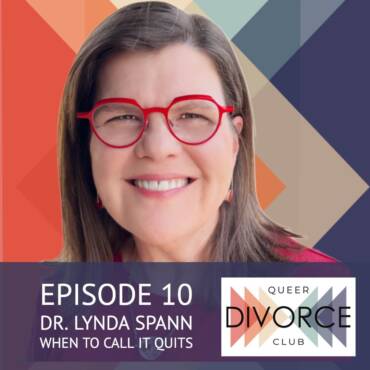To say that 2020 has been a tough year is an understatement! But despite everything that’s going on in the world, you can still enjoy the holidays and keep your stress levels under control.
The secret?
Taking self-care seriously.
By showing yourself the love you need and deserve, you’ll find it so much easier to relax during this festive (and hectic) season. Nurturing yourself will also strengthen your relationships because you’ll be calmer, more patient, and more present with your honey.
Try these strategies:
Take care of the basics first
Get some exercise, eat wholesome foods, and stick to a regular sleep schedule. Try to get outside because spending time in green spaces can lower your stress levels.
If all that’s not possible right now, treat yourself with compassion, and just do your best. Self-criticism will only make you feel worse, and self-care isn’t a competition.
Express yourself
Art therapy helps relieve stress and provides a creative outlet. You can take a DIY approach by sketching, making a collage, painting, creating digital art, or sculpting.
The possibilities are endless! If you want to pick up a new skill or technique, look for free or low-cost online courses and tutorials. YouTube is a good place to start.
Get nostalgic
Taking a trip down memory lane can be very comforting. For example, you could:
- Watch TV shows or movies that make you feel safe and remind you of happy times
- Make cookies using an old family recipe
- Reminisce with your partner about your favorite holiday memories
- Look at old photos that make you feel warm and fuzzy
Focus on what you’re grateful for
Being grateful sounds like a tall order right now, but gratitude will give you a psychological boost.
Try focusing on what you still have and what you can still do this holiday season. For example, you might not be able to go to family parties, but you can still be thankful that we have free apps to help us stay in touch.
Manage your time
It may not sound fun or festive, but scheduling your activities (including time for self-care!) will help you feel less stressed.
To-do lists and reminders will lighten your mental load. Writing down everything you have to do will also reveal whether you are taking on too much and need to cut back.
Create and keep boundaries
For example, if you don’t want to have a Zoom call with all of your cousins on the same day because lots of social interaction stresses you out, say so.
A polite “No thanks” is a complete sentence. You can suggest an alternative that works better for you. In this example, that might mean calling your cousins on separate days.
You may also have to defend your boundaries if your friends or relatives don’t share your attitude towards COVID restrictions. If they want to meet up but you feel it would be too risky, it’s your right to say “No” and stick to your decision.
Don’t overdo your social media time
Social media is great for keeping up with loved ones, but comparing yourself (and your celebrations) to others can tank your mood and self-esteem quickly.
Try limiting time on Instagram, Facebook, and other platforms to 10 or 15 minutes a day.
Remember that people rarely admit to their struggles online. Their posts won’t necessarily reflect what’s really happening in their lives.
Limit the time you spend reading and watching the news
It’s good to stay informed, but worrying about everything that’s happening in the world will stress you out.
Give yourself a few minutes per day to skim the biggest stories, then move on. Read websites that highlight good news, such as the Good News Network or Positive News.
Listen to something uplifting or funny
What we listen to can have a huge impact on our moods. Soothing music can make us feel happier and can reduce feelings of loneliness. If music isn’t your thing, hunt down some podcasts or audiobooks that make you smile or laugh.
Try aromatherapy
Some scents, such as lavender, have been proven to reduce stress. You might experiment with lavender or orange oil; they’ve both been shown to decrease anxiety and improve mood. Place a few drops on your pillowcase, in a hot bath, or invest in a diffuser and fill your home with calming scents.
Practice breathing exercises
Breathing exercises are awesome. They don’t cost anything, they are easy to learn, and you can do them anywhere.
Try these:
- Square breathing: Breathe in for four seconds, hold for another four seconds, then exhale for four seconds. Great for when you’re feeling anxious!
- Rapid exhalations: Start by taking a deep breath in. Then exhale through your nostrils in 6-10 quick bursts while keeping your mouth closed. This one helps when you feel like you’re shutting down.
Repeat these exercises several times until you feel better.
Honor your feelings
The holidays aren’t always easy. For some of us, the holidays remind us of loss. This year we also have COVID anxiety to contend with.
Trying to push away your worries can make them worse. Accepting that you have complicated feelings about the holidays can take the pressure off.
Embrace the complexity of your feelings and share them with your wife or girlfriend.
Buy yourself a gift (or two!)
We all deserve a treat after surviving 2020. Go all-out and use your best gift wrap and bows. It’s still exciting to open a gift even when you know what’s inside!
Ask for help if you need it
If you feel overwhelmed, reach out to a trusted friend or counselor for support.
Just talking about your feelings can raise your spirits and help you feel less isolated. If you already have a therapist or counselor and the holidays are difficult for you, ask them how to access support when their office is closed.
Look for the silver lining
More than ever before, we can see how important self-care is for our mental health.
One of the few silver linings of the pandemic is that we can come out on the other side stronger and more resilient, having learned to care for our mental and emotional health.
It’s empowering to know that you’ve made it through difficult times. Be proud of yourself for coming this far and have faith in your ability to nourish and love your mind, body, and soul.




